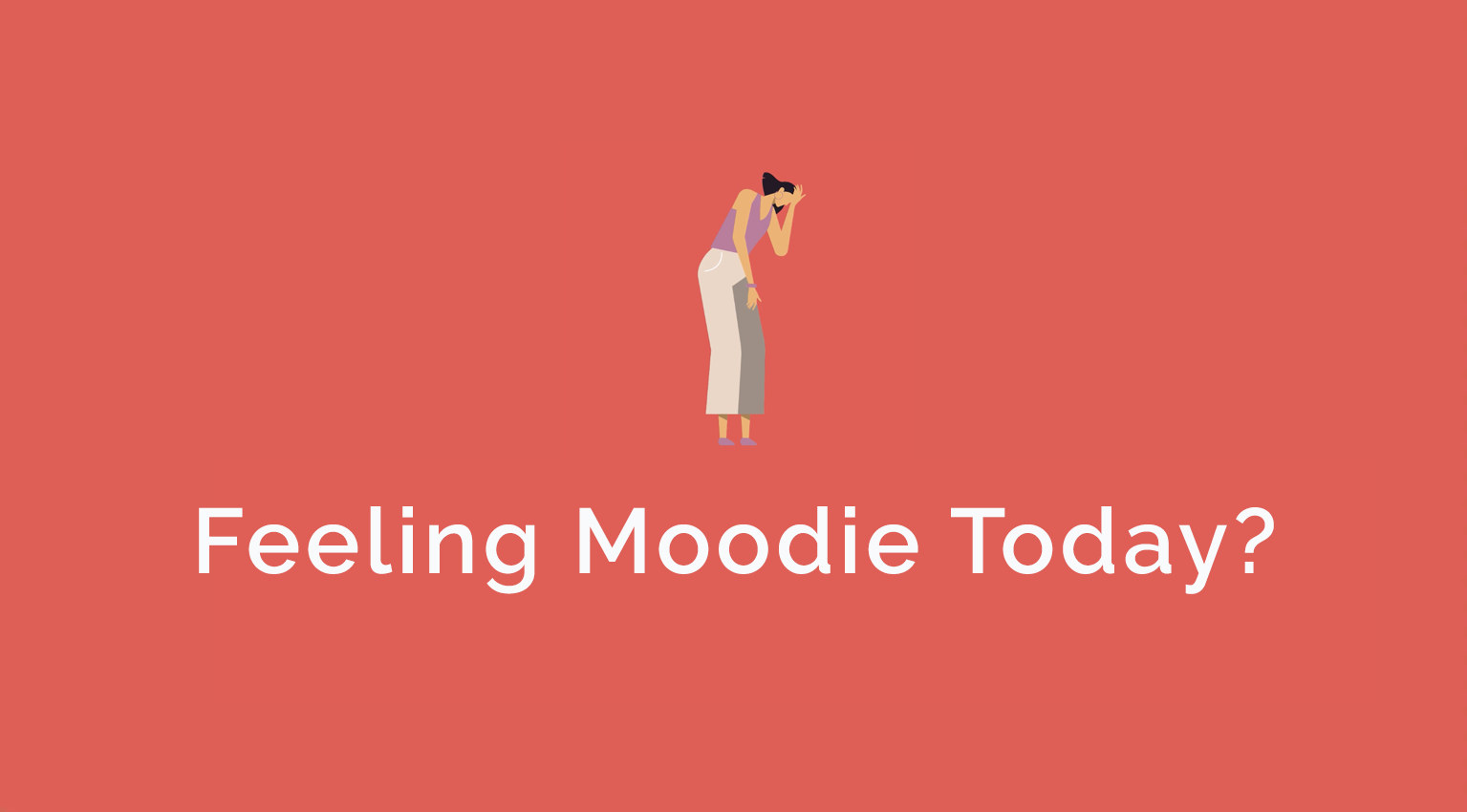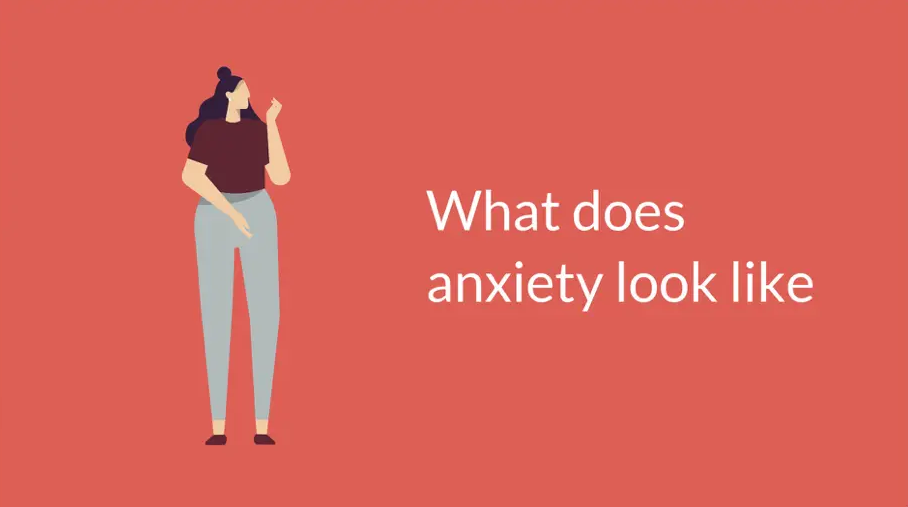5 Tools for effective stress management

We live in a world of “hustle culture”, where we are constantly being told we are not doing enough. That we must constantly be working
or building or creating something better. This stress can be detrimental to our mental health, and at Feeling Moodie, we believe in finding
ways to relieve this stress and live life on YOUR terms.
These are some great books on living a happier life, creating good habits, and living in the moment. You Are a Badass by Jen Sincero,
Atomic Habits by James Clear,
and Think Like a Monk by Jay Shetty do a great job at helping you create the life you want while increasing happiness and reducing stress.
Whether you want to add more movement to your life, introduce some healthier habits, or break out of feeling like crap, the 5 tips and tricks in this blog will help you create
a more balanced and active life.
1. Self-care and self-compassion are important
Some days will be less than perfect and that’s okay. Self-compassion is the ability to be understanding and considerate towards yourself when things go wrong. If you miss the gym or
have a less-than perfect day, will you be judgmental toward yourself or will you recognize it is a part of life and that everyone has bad days?
Dr. Kristin Neff, an Associate Professor of Educational Psychology at The University of Texas describes self-compassion as:
“Self-compassion involves acting the same way towards yourself when you are having a difficult time, fail, or notice something you don’t like about yourself. Instead of just ignoring
your pain with a ‘stiff upper lip’ mentality, you stop to tell yourself ‘This is really difficult right now’, how can I comfort and care for myself in this moment?”
You can read more about her research and find guided practices for self-compassion on her website at https://self-compassion.org/
2. Schedule daily healthy habits
“If you fail to plan, you plan to fail”. Taking some time on Sunday to plan your week ahead can make all the difference in how your week goes and how much you accomplish.
Make time for the things that bring you joy. Schedule some self-care time or book your workouts and fitness classes in advance. Preparing for the week will eliminate the stress
of not knowing where you are supposed to be or what you will eat. A pro tip is to meal prep your work lunches on Sunday to make sure you are not rushing in the mornings, or even
sign up for a meal delivery service that gives you options and takes the guessing game out of dinner.
Find self-care practice you enjoy and block out some time every week to do them. Make sure you spend time outside, ask a friend to go out for dinner, or go volunteer at your
local dog shelter. Scheduling these activities in advance will ensure that you follow through and that you are prioritizing self-care.
3. Surround Yourself with Supportive People
Buh-bye negative Nancy, we don’t need you in our lives! If you have a friend or coworker who is constantly complaining and, quite honestly, sucks the life out of you, distance
yourself or respectfully set boundaries with that person. Surrounding yourself with like-minded people who have the same goals and interests can up-level your life.
4. Let Yourself REST
Rest is just as important as exercise and work. If you are feeling burnt out, give yourself time to recharge. Have a Netflix in bed Sunday, turn off your alarm on Saturday morning,
or book yourself a massage. The important part here is to step back and distance yourself from all the anxieties and worries of everyday life. You can use our deep breathing feature
in the Feeling Moodie app to be guided through a few deep breaths and practice being present.
5. Celebrate the Small Wins
It is so easy to get caught up in the things we lack that we can miss the things that are right in front of our faces. Understand that to succeed, we must learn how to fail. We must learn from our mistakes and try to find lessons in the things that don’t work out. So find the beauty in every day. Did you make it to every work out for a week straight? Did you eat all your meals and didn’t waste any food? Did you check off the item on your to-do list that has been there for months? Celebrate your wins and accomplishments, no matter how small. Focus on enjoying every day instead of obsessing over where you want to be or what you don’t yet have.
If you can implement even a few of these daily healthy habits, we promise you are on the way to balance and less stress. We know how discouraging it can be to constantly feel down in the dumps, but we have faith that a few adjustments will make all the difference. Start by planning your week, and slowly implement the tips and tricks in this article to figure out what works for you. Everyone is different, and it takes some trial and error to find a good routine. Wellness can be overwhelming and confusing, but you don’t have to do it all at once. Feeling Moodie is here to support you!
Are you feeling Moodie today? That’s okay, we all do from time to time.

Moods are like waves in the ocean - highs and lows, crashing on the shore, only to be swept away.
We know we are not alone when we say that we all feel a bit moody sometimes - and that these moods can
affect our thoughts, feelings, behaviors, and even our physical state. Our feelings and moods change (or shift)
throughout our lives, but we can find a way to cope with them and not let them control us.
Over the next 4 weeks, we will be discussing the different types of anxiety and depression, how to manage stressful situations, how to
implement self-care into your routine, and tips on staying motivated.
What are moods?
How do they work? And when do they start to become a problem? We all go through periods when we feel down or irritable, but when these feelings last for
more than a few weeks and interfere with your ability to function daily, it’s important to reach out for help.
Anxiety and Depression
Anxiety and depression are two very common mental health conditions that can have a profound effect on our daily lives. Anxiety can cause feelings of worry,
stress, and unease, while depression can lead to feelings of sadness, low self-worth, and hopelessness. These conditions can make it difficult to concentrate, sleep,
eat, and enjoy activities we used to find pleasurable. However, there are ways to cope with anxiety and depression. One helpful strategy is mood tracking.
This involves keeping track of our moods in order to identify patterns and triggers. This information can then be used to develop coping strategies that are tailored
to our individual needs. Another useful approach is seeking professional help from a therapist or counselor. This can provide us with the tools and support we need to
manage our anxiety and depression in a more effective way.
Self-Care
Everyone has different self-care practices that work for them, but there are some commonalities between what works for different people. Creating routines and incorporating
self-care into your daily life can make it easier to stick to healthy habits. Setting aside time for exercise, relaxation, and mindfulness can help reduce stress levels and improv
e your overall well-being. Staying motivated can be a challenge, but a few things can help. First, remember why you started down the path of self-care in the first place.
Whether your goal is to improve your physical health, mental well-being, or both, remind yourself of the benefits of self-care. Secondly, find an accountability partner or
group to help keep you on track. Knowing that someone else is counting on you can be a powerful motivator. Finally, don't be too hard on yourself if you slip up. Accept that
mistakes happen and just get back to your self-care routine as soon as possible.
Where Feeling Moodie comes in
The Feeling Moodie app is designed to help you get to know yourself better and implement healthy habits. The app includes a mood tracker, journal, and mind fitness plans.
The mood tracker helps you track your mood over time, and the journal allows you to record your thoughts and feelings. The mind fitness plans encourage you to learn how your
thoughts and emotions influence your mood, develop positive routines, and improve your mental health.
Thanks for sticking with us! We know this was a lot of information, but hopefully, you now have a better understanding of moods and how they work. If you’re feeling overwhelmed
or like your mood is becoming a problem, don’t hesitate to reach out for help. There are many resources available to you, and we want to make sure that Feeling Moodie can be one
of them. Download our app and start tracking your mood today – it’s free! And if you have any questions or comments, please let us know. We love hearing from our users.

OUR CASE STUDY WAS COMPLETED BY THE UNIVERSITY OF MONCTON

We are very happy to share results from a recent pilot study with our Feeling Moodie app conducted by
Denis Lajoie and Annie Roy-Charland at the Université de Moncton. We have included excerpts from the
study below, which we have taken from the full report - Click Here to View the Case Study
- Amongst other functionalities, the Feeling Moodie App provides users with the opportunity to keep track
of their daily activities and mood.
- The study explored correlation patterns between psychological variables (positive and negative
emotional affects) and frequency of Moodie use, and the participants’ average moods and activities.
- As a proof-of-concept, the study explored the psychometric networks found across mood points using
the Group Iterative Multiple Model Estimation (GIMME) approach and a non-direct psychometric
network across all mood points.
- In this study it was found that the frequency of Moodie use over a two month period was associated with
lower anxiety levels at the end of the study period.
- Correlations with frequency of Moodie use:
- correlations were statistically significant.
- People who reported more stress at time 1 used Moodie less. On the other hand, people who used
Moodie more were less externally motivated and less anxious at time 2. The correlation with stress
at time 1 is likely self-explanatory: stressed people probably had less psychological resources to
spend on mood check-ins. The correlation with external motivation is more surprising but still
logically plausible (people who are “in it for the money’ may find less value in participating in a
scientific study over a long term). The negative correlation is likely the most interesting one: there is
a potential for a causal effect here where Moodie use decreases anxiety. Of course, all correlations
discussed must be interpreted in light of the study limitations.
Appendix - View Appendix Now
Mood Points Network Document- View Mood Points Network Now
What is Anxiety?
Causes and Symptoms

Anxiety is a normal response to stress that we all feel from time to time. It can
alert us of potential dangers, and can help motivate us to take action toward our
goals. We might recognize it as an emotion and also through physical sensa-
tions such as feeling restless, sweaty, nauseous, or having an increased heart rate.
Although in the moment it can feel like our anxiety is permanent, these sensations
are often temporary and are not dangerous in themselves.
However, anxiety
can become a huge burden when we experience it constantly causing us to feel
tired, tense, mentally foggy, irritable, and unable to participate fully in our lives.
Sometimes, we may be tempted to avoid scenarios that trigger our anxiety, how-
ever, this avoidance unfortunately only makes the the fear stronger. It is there-
fore important to develop practical skills to recognize and tolerate our anxi-
ety response, so that we can take back control of our lives.
What does Anxiety look like?
How it affects us

Anxiety can manifest both mentally and physically. Here are some common ways
we experience anxiety:
- Racing heart
- Chest tightness
- Nausea
- Sweating
- Trembling
- Feeling on edge
- Muscle tension
- Trouble concentrating
- Numbness or tingling
- Headaches
- Fatigue
- Irritability
- Trouble sleeping
Sometimes our anxiety can take the form of thoughts such as:
- “What if they make fun of me?”
- “What if I do a bad job?”
- “What if I never get better?”
We may also participate in behaviours that seem to decrease our anxiety in the
short-term, but in reality prevent us from reaching our goals and makes the anxiety
stronger over time. Here are some ways that could happen:
Turning down invitations to social events because we are worried about embarrass-
ing ourselves in front of new people;
Avoiding public transport because being in a crowded space makes us anxious;
Avoiding speaking up in class or in a meeting in case we say the wrong thing;
Turning down a promotion at work because we are afraid we will not be good
enough.
Sometimes, anxiety can come on so quickly that we react before we realize what is
happening around us. When this happens we may actually make the situation
worse. It is important to recognize what our personal anxiety symptoms look like so
that in a crisis, we can observe our physical and mental response and proceed
mindfully.
Now take a moment to think about what anxiety looks like for you.





